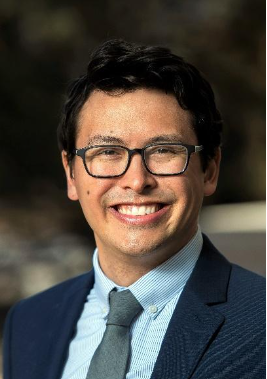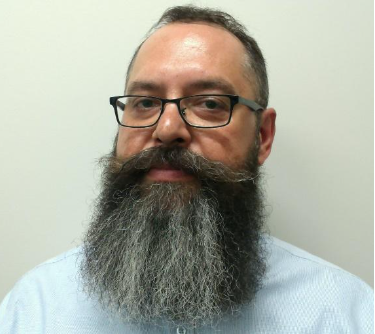
The Northern Alberta, Southern Alberta, Saskatchewan, and Manitoba Sections are pleased to invite you to our first joint event, entitled, Beyond the Horizon: Future-Proofing Transportation on the Prairies. Speakers will focus on four key topics relevant to the current state and long-term vision of transportation on the prairies. This is an interactive session – we want to hear your thoughts and ideas.
Date: Monday, February 26
Time: 1:00 pm – 2:30 pm MST (2:00 pm – 3:30 pm CST)
Registration Fee:
Member: $5
Non-Member: $10
Students: Free
All proceeds will be donated to Indspire, a national Indigenous registered charity that invests in the education of First Nations, Inuit and Métis people.
 Emergency Response for Alberta Wild Fire Evacuation
Emergency Response for Alberta Wild Fire Evacuation
Dr. Stephen Wong is an Assistant Professor in the Department of Civil and Environmental Engineering at the University of Alberta and leads the Resilient and Sustainable Mobility and Evacuation (RESUME) Group. Dr. Wong’s research focuses on the intersection of disasters/emergencies, decision-making, and transportation and works to create more resilient, environmentally friendly, and equitable transportation systems. He is actively involved in resilience and young professional activities at the Transportation Research Board and evacuation research at the International Association for Fire Safety Science. Dr. Wong received his Ph.D. in Civil and Environmental Engineering from the University of California, Berkeley in 2020.
 Road Safety Act Discussion
Road Safety Act Discussion
Marcia Eng is a Senior Transportation Engineer and has over 23 years of diverse transportation planning and operations, urban design and construction, and project management experience. She has worked closely with clients in various municipalities throughout Alberta, British Columbia and Manitoba to ensure safe and comfortable mobility options for people of all ages and abilities. She has developed a unique perspective of balancing competing needs through all phases of a project and between different roadway users.
Marcia will share key insights from a panel discussion hosted by the Southern Alberta Section in November of 2023 that explored the ways in which transportation engineers interact with the provincial Road Safety Act, and how we can best work together to support evolution of legislation while pursuing safe and equitable street design decisions.
 Technology on the Highway: Are We There Yet?
Technology on the Highway: Are We There Yet?
Derek Jaworski is a graduate of the University of Regina Faculty of Engineering, and has worked for the Saskatchewan Ministry of Highways since 2006. After working five years as a Traffic Engineer, he became Manager of Traffic Services and has remained in that capacity since. His primary responsibility is managing traffic data on the highway and rural municipal road systems. In recent years, his responsibility has expanded towards ITS, including authoring and updating the Strategic Plan for ITS in Saskatchewan, and overseeing ITS related operations. In TAC he is a member of the ITS Committee and participates in the Connected and Automated Vehicles Integrated Committee and the Technology Council.
His presentation will highlight some of the technology the Ministry of Highways uses from a monitoring and traveler information perspective, and describe conditions that affect the operation of the system. While a plan for the future is on paper, a few back-of-mind things will be mentioned that could shake the plan from more of the same.
 Rural Intersection Road Safety
Rural Intersection Road Safety
Dr. Craig Milligan is a recognized international expert in road safety engineering and product manager for safety technologies at Miovision as well as the managing director of Fireseeds North Infrastructure, a leading road safety audit firm. He has completed more than 600 in-service road safety reviews and design audits at all stages for more than $8B of capital projects, and he is a frequent road safety instructor for the International Road Federation. He built and led MicroTraffic, a leading road safety video analytics company, until its acquisition by Miovision in February 2023. He has authored 30 technical papers and 10 design guidelines.
Rural intersections are unfortunately the sites of many collisions resulting in fatalities and serious injuries. High speeds and right angles combine to produce high risk potential, although there are opportunities to manage this risk through a wide range of interventions and design practices. This presentation will look at a spectrum of proven interventions for rural intersection safety and a spectrum of methods for deciding where to implement these interventions. In general this ranges from systemic, wide scale application of low-cost interventions to focused application of high-cost interventions following screening and detailed risk diagnosis.
***
Attendees will hear brief overview presentations from all speakers, and then delve deeper into two topics during breakout group discussions. Come to hear ideas, share ideas, and connect with peers from across the prairies.
Agenda:
| 1:00 pm – 1:10pm | Welcome and introductions |
| 1:10pm – 1:35pm | Overview presentations |
| 1:35pm – 1:55pm | Breakout group 1 |
| 1:55pm – 2:15pm | Breakout group 2 |
| 2:15pm – 2:30pm | Reconvene with all attendees |
| 2:30pm | Adjourn formal session |
| 2:30pm – 3:00pm | Optional networking period |